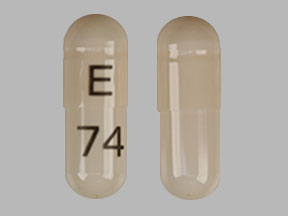Venlafaxine and Alcohol/Food Interactions
There are 2 alcohol/food/lifestyle interactions with venlafaxine.
Venlafaxine Food/Lifestyle
Moderate Food Interaction
Alcohol can increase the nervous system side effects of venlafaxine such as dizziness, drowsiness, and difficulty concentrating. Some people may also experience impairment in thinking and judgment. You should avoid or limit the use of alcohol while being treated with venlafaxine. Do not use more than the recommended dose of venlafaxine, and avoid activities requiring mental alertness such as driving or operating hazardous machinery until you know how the medication affects you. Talk to your doctor or pharmacist if you have any questions or concerns.
Switch to professional interaction data
Venlafaxine High Blood Pressure (Hypertension)
Moderate Potential Hazard, Moderate plausibility
SNRI antidepressants - hypertension
Selective serotonin and norepinephrine reuptake inhibitor antidepressants (SNRIs) have been associated with sustained increases in blood pressure. Therapy with SNRI antidepressants should be administered cautiously in patients with preexisting hypertension. Blood pressure should be assessed prior to initiating treatment and monitored regularly. The dose should be reduced or discontinued if necessary.
Switch to professional interaction data
Venlafaxine drug interactions
There are 706 drug interactions with venlafaxine.
Venlafaxine disease interactions
There are 11 disease interactions with venlafaxine which include:
- depression
- renal disease
- renal/liver disease
- mania
- glaucoma
- hypertension
- hyponatremia
- mania
- seizures
- urinary tract obstruction
- weight loss
More about venlafaxine
- venlafaxine consumer information
- Check interactions
- Compare alternatives
- Pricing & coupons
- Reviews (2,808)
- Drug images
- Side effects
- Dosage information
- Patient tips
- During pregnancy
- Support group
- Drug class: serotonin-norepinephrine reuptake inhibitors
- Breastfeeding
- En español
Related treatment guides
Drug Interaction Classification
| Highly clinically significant. Avoid combinations; the risk of the interaction outweighs the benefit. | |
| Moderately clinically significant. Usually avoid combinations; use it only under special circumstances. | |
| Minimally clinically significant. Minimize risk; assess risk and consider an alternative drug, take steps to circumvent the interaction risk and/or institute a monitoring plan. | |
| No interaction information available. |
See also:
Further information
Always consult your healthcare provider to ensure the information displayed on this page applies to your personal circumstances.


